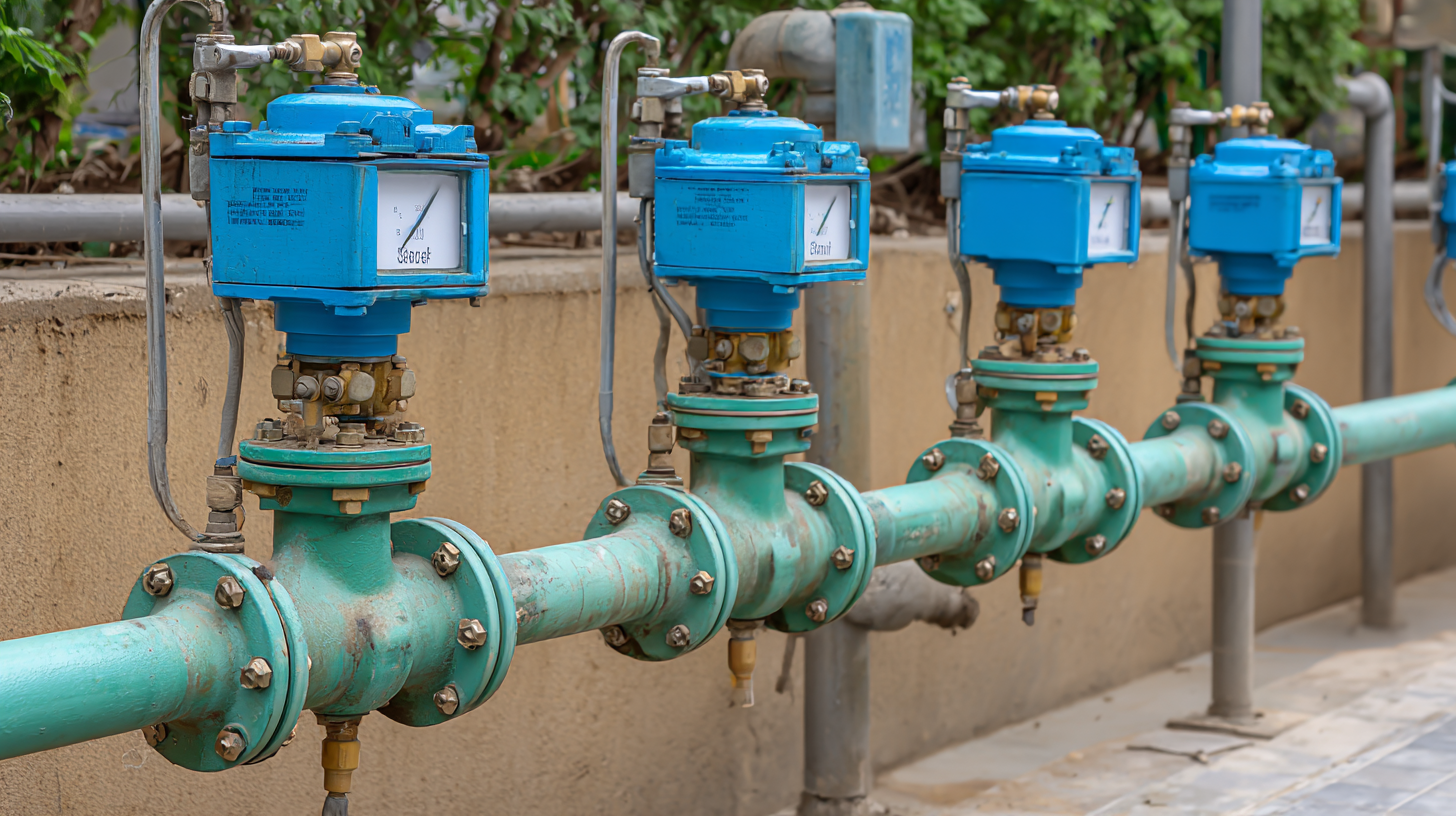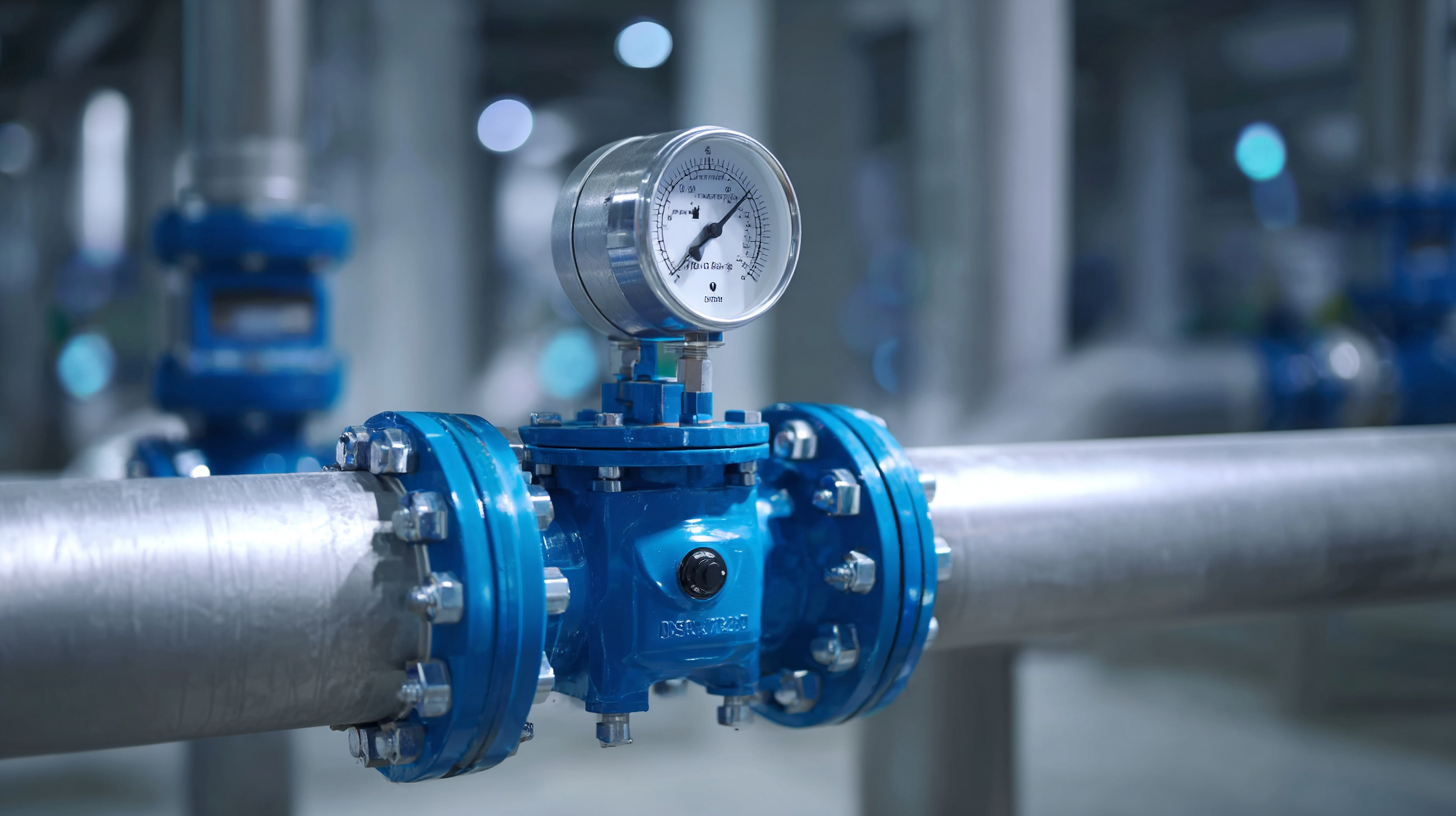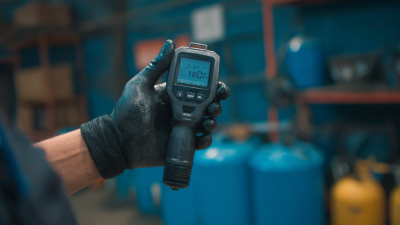Understanding the Importance of Water Flow Meters in Efficient Resource Management
Water Flow Meters are essential tools for efficient resource management, particularly in sectors such as agriculture, municipal water supply, and industrial processes. According to a report by the International Water Management Institute, effective water monitoring can lead to a reduction of up to 30% in water wastage, reinforcing the critical role of Water Flow Meters in achieving sustainability goals. These devices not only help track water usage but also enhance the ability to allocate resources more effectively, ultimately contributing to better conservation practices. Furthermore, the global market for water flow measurement equipment is expected to reach $5.2 billion by 2025, as organizations increasingly recognize the need for precise measurement to optimize operations. In this context, understanding the importance of Water Flow Meters becomes paramount for industries and municipalities aiming to enhance their water management strategies, ensuring both economical benefits and environmental sustainability.

The Role of Water Flow Meters in Sustainable Resource Management
Water flow meters play a crucial role in sustainable resource management by providing accurate data on water usage. These devices measure the volume of water flowing through pipes, enabling organizations and municipalities to monitor consumption patterns effectively. By understanding water usage trends, managers can identify areas of wastage and implement conservation measures, ultimately leading to reduced costs and improved resource efficiency.
Moreover, the data generated by water flow meters can inform strategic planning for future water supply and infrastructure development. Communities can use this information to allocate resources more effectively, ensuring that all sectors receive the necessary water supply while minimizing environmental impact. Additionally, precise monitoring helps in regulatory compliance, as accurate records can demonstrate adherence to local and national water usage standards. Overall, the integration of water flow meters into resource management strategies is essential for promoting sustainability and ensuring the long-term availability of this vital resource.
Understanding the Importance of Water Flow Meters in Efficient Resource Management
| Parameter | Value | Significance |
|---|---|---|
| Average Household Water Consumption (liters/day) | 300 | Estimates typical usage for efficient management |
| Accuracy of Water Flow Meters (%) | 95 | High accuracy ensures precise resource tracking |
| Water Loss in Leaking Systems (%) | 20 | Indicator of potential savings with monitoring |
| Monthly Reporting Frequency | 1 | Regular assessments for timely adjustments |
| Cost Savings from Leak Detection (%) | 15 | Identifying leaks early enables budget-efficiency |
Key Benefits of Implementing Water Flow Meters in Agriculture
The implementation of water flow meters in agriculture is transforming water management practices, offering significant advantages for efficiency and sustainability. By accurately measuring water usage, these devices empower farmers to monitor their irrigation patterns closely. Reports indicate that IoT-based smart water systems can reduce agricultural water usage by up to 30% through precise irrigation control. This precision not only conserves water but also enhances crop yields, making water meters indispensable tools for modern farming.
 Furthermore, the integration of advanced technologies such as AI and sensor systems is streamlining water management on farms. For instance, the use of ultrasonic water meters allows for real-time tracking of water consumption, crucial in environments like poultry housing. A study from Cranfield University highlights the benefits of sensor technologies, particularly during dry seasons, emphasizing that efficient water management is vital for small-scale farms facing the challenges of climate change. With trends indicating that over 60% of water utilities will leverage satellite data for predictive maintenance by 2025, the future of agricultural water management lies in smart, data-driven solutions that ensure resource efficiency and environmental conservation.
Furthermore, the integration of advanced technologies such as AI and sensor systems is streamlining water management on farms. For instance, the use of ultrasonic water meters allows for real-time tracking of water consumption, crucial in environments like poultry housing. A study from Cranfield University highlights the benefits of sensor technologies, particularly during dry seasons, emphasizing that efficient water management is vital for small-scale farms facing the challenges of climate change. With trends indicating that over 60% of water utilities will leverage satellite data for predictive maintenance by 2025, the future of agricultural water management lies in smart, data-driven solutions that ensure resource efficiency and environmental conservation.
How Accurate Measurements Improve Water Conservation Efforts
Accurate measurements of water flow are crucial for effective resource management and conservation efforts. Water flow meters provide precise data on water usage, enabling organizations and municipalities to identify areas of waste or inefficiency. By monitoring consumption patterns, stakeholders can make informed decisions about resource allocation, ensuring that water is distributed equitably and sustainably. This level of oversight is vital in both urban and agricultural settings, where water scarcity is a growing concern.
Moreover, the implementation of advanced water flow meters can lead to proactive measures in water conservation. These devices not only track the amount of water used but also help detect leaks or malfunctions in the supply system. Early identification of these issues allows for timely repairs, significantly reducing water loss. When consumers are presented with accurate data about their own usage, they are more likely to adopt conservation practices, fostering a culture of responsibility and awareness around water resources. This symbiotic relationship between measurement and conservation plays a pivotal role in addressing environmental challenges related to water scarcity.
Water Flow Meter Efficiency and Water Conservation Efforts
Best Practices for Selecting and Installing Water Flow Meters
When selecting and installing water flow meters, it is crucial to consider several best practices to ensure accurate measurements and optimal performance. First and foremost, it’s important to understand the specific application requirements, including the type of fluid, flow rates, temperature, and pressure conditions. Selecting a suitable flow meter type—whether ultrasonic, electromagnetic, or mechanical—can significantly impact measurement accuracy and system efficiency.
Another vital aspect is installation. Proper placement of the flow meter is essential for accurate readings; ideally, meters should be installed in straight sections of the pipe, away from bends, valves, or other obstructions that can cause turbulence. Additionally, ensuring that the meter is calibrated correctly after installation can prevent inaccuracies that may arise from environmental factors or changes in system dynamics.
The market for ultrasonic flow meters, in particular, is experiencing significant growth, projected to increase from $2.08 billion in 2025 to $3.07 billion by 2032, with a compound annual growth rate (CAGR) of 5.5%. This surge underscores the rising demand for efficient resource management, which water flow meters facilitate by providing precise data needed for monitoring and optimizing water usage in various applications.

Integrating Technology: Smart Water Flow Meter Solutions for the Future
The integration of smart technology into water flow metering is set to revolutionize resource management across various sectors. Recent industry reports indicate that installations of smart water flow meters can lead to a reduction in water consumption by up to 20%, highlighting their efficiency in conserving this vital resource. By providing real-time data and analytics, these advanced systems empower utilities and businesses to monitor consumption patterns, detect leaks, and optimize usage. According to the American Water Works Association, the adoption of smart meters can also reduce operational costs significantly, with some municipalities reporting savings of over 30% in maintenance and labor expenses.
When considering technology upgrades, here are some tips to ensure a successful transition to smart water flow metering:
- Conduct a thorough assessment of your current water management practices to identify areas for improvement.
- Choose a solution that is scalable and compatible with your existing infrastructure to facilitate seamless integration.
- Invest in training for staff to leverage the full capabilities of smart meters, ensuring your organization reaps the maximum benefits from this innovative approach.
The future of water resource management relies heavily on embracing these smart solutions, fostering sustainable usage, and ultimately preserving one of our most precious resources. As municipalities and industries move forward, the demand for effective water flow metering technology will only increase, driving advancements that yield both ecological and economic benefits.
Related Posts
-

The Future of Flow Meters Technology Trends and Their Impact on Industrial Efficiency
-

The Ultimate Guide to Understanding Flow Meters and Their Impact on Industrial Efficiency
-

5 Reasons Why the 2 Inch Flow Meter is a Game Changer for Your Industry
-

How to Choose the Right Mag Meter for Your Industrial Applications
-

How to Select the Right Mechanical Flow Meter for Your Industrial Needs
-

How to Choose the Right Inline Flow Meter for Your Industrial Applications
